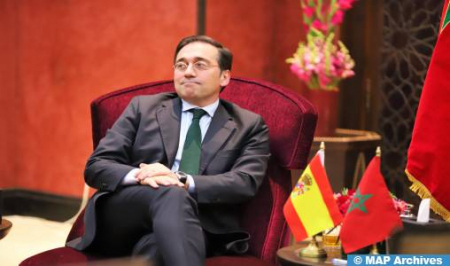Relations between Morocco, Spain ‘Can Only Be State Policy’, Says Albares
Morocco is a country of ”crucial importance” for Spain and Europe, stressed the Spanish Minister of Foreign Affairs, European Union and Cooperation, José Manuel Albares, stressing that relations between Rabat and Madrid are a ”state policy”. “Relations with Morocco can only be a state policy. Morocco is an important country for Spain and for Europe”, said Albares, Tuesday, before the Foreign Affairs Committee of the Spanish Senate, during a session devoted to the priorities of the foreign policy of Spain in 2023. “The roadmap that we have developed with Morocco is progressing at the established pace, as noted by both parties,” said the Spanish official. He recalled, in this regard, that “the High Level Meeting held on 1 and 2 February in Rabat, the first in eight years and the first to be held in Morocco in 11 years, has resulted in the largest number of agreements in 30 years of high-level meetings with Morocco, about twenty. “We have signed important agreements to continue to support the presence of our companies in Morocco, which, with about 12,000 million euros of exports and 20,000 million of global trade in 2022, is already our third largest market outside the European Union, behind the United States and the United Kingdom”, he said, noting that more than 1,100 small and medium-sized Spanish companies have trade links with Morocco. “In the High Level Meeting in Rabat, both countries have reached agreements in strategic sectors in which Spain has experience and competitive capacity, such as water, infrastructure and railroads, and in which Morocco expects large investments in the future, up to 40 billion euros in railroads in the next few years and nearly 14 billion euros in water until 2027”, added Albares. After highlighting bilateral cooperation in the fight against illegal immigration and terrorist cells “in a very difficult regional context, the most difficult in decades,” the Spanish minister said that the new stage between the two countries is distinguished by “a very important new chapter, namely education and culture”. “Our societies should know each other better, and that is why we have signed an agreement to establish new bilingual sections in Moroccan schools with a potential of up to 100 schools, and the construction of a new Spanish public high school in Rabat,” he said. “We are going to continue this work in a climate of calm, serenity, in accordance with the roadmap that we have agreed upon together, to consolidate it, to make it irreversible,” concluded Albares.

